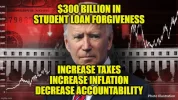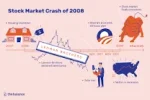Phoenix68
Well-Known Member
- Joined
- Mar 12, 2022
- Messages
- 14,206
"The "bad debt" problem is not just "sub-prime" folks who should never have have taken out mortgages in the first place. It includes credit card debt, "high quality" mortgages, car loans, and other leverage that have recently become a consumer way of life."GWB had no time left in his term to help cleanup the financial collapse mess primarily caused by the very bad Commodity Futures Modernization Act of 2000.

![male31-male-smiley-whistle-smiley-emoticon-000073-large[1].gif male31-male-smiley-whistle-smiley-emoticon-000073-large[1].gif](https://www.houseofpolitics.com/data/attachments/14/14181-b41d66f64f3387032e08dfb765af4b38.jpg?hash=tB1m9k8zhw)
![george-bush-looking-stupid[1].webp george-bush-looking-stupid[1].webp](https://www.houseofpolitics.com/data/attachments/14/14182-595e9202a25df595c0ea6be56f7b4132.jpg?hash=j7uH_B_DMB)




